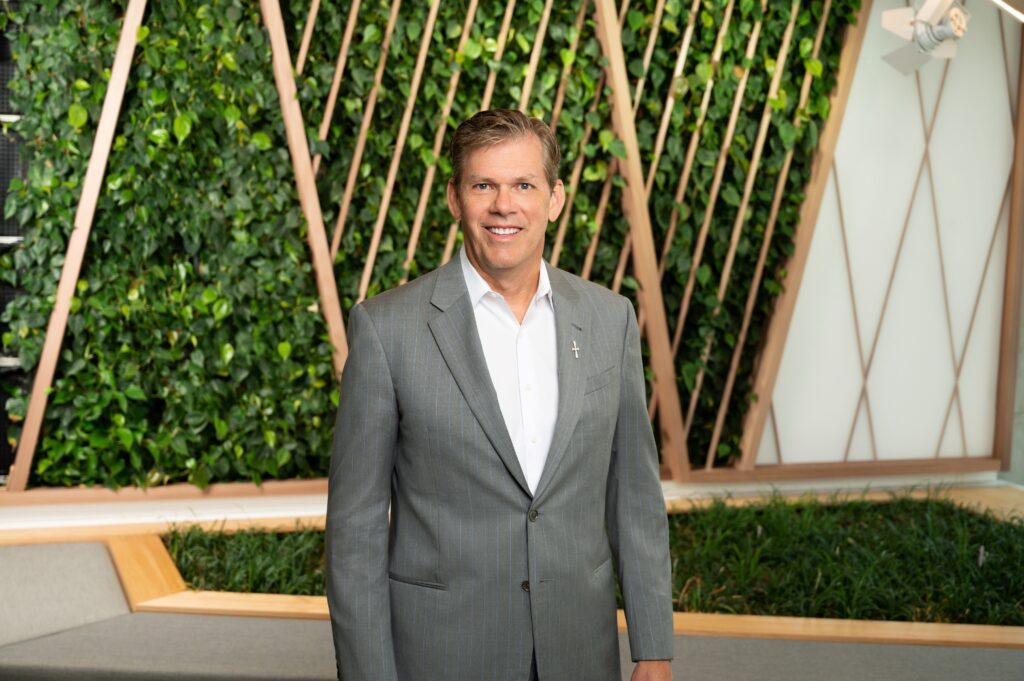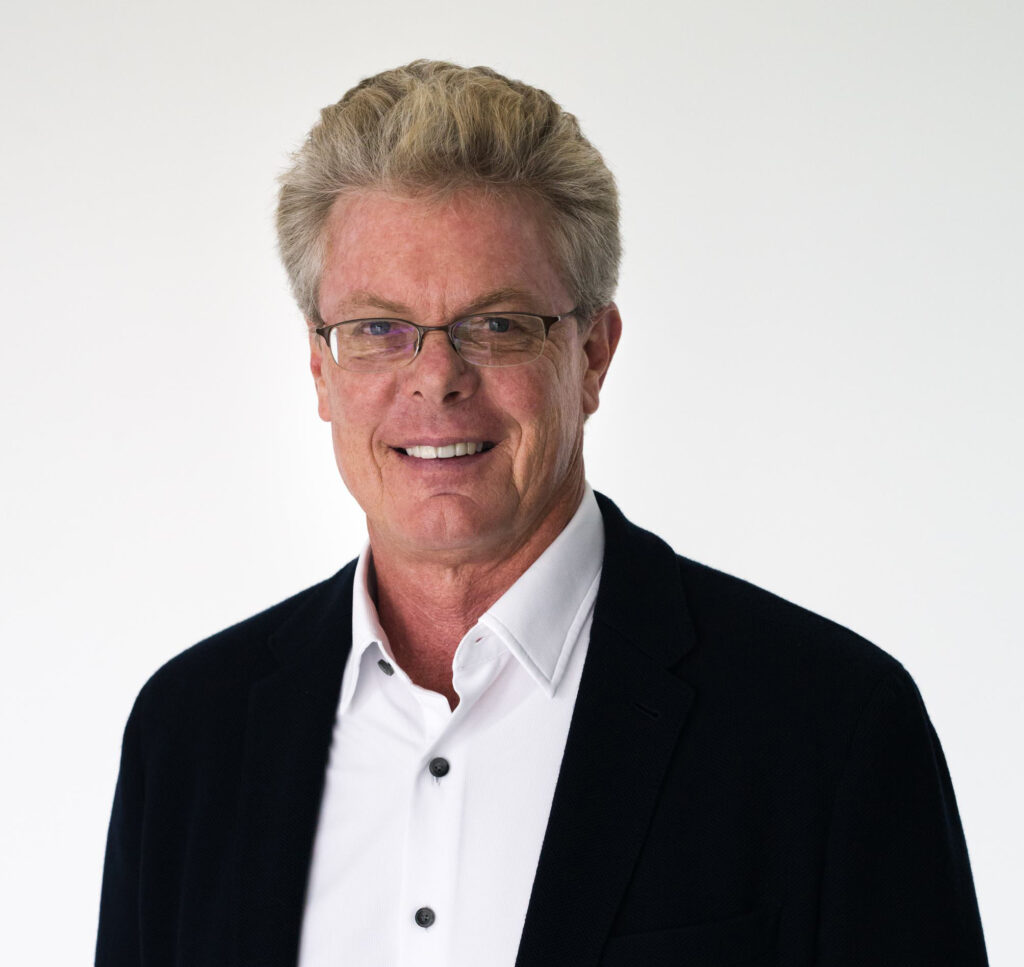Ticket to the Limit

If you ask Randy Cohen, founder of the Austin-based ticket broker and online marketplace TicketCity, the letters “CEO” mean something different.
For decades, Cohen has referred to himself as TicketCity’s Chief Energizing Officer. Within seconds of meeting him, you see that the moniker fits. In our fast-talking chat, he explains what it means to be the chief energizer, how his endless energy helped him conquer countless challenges—from police chases to livid ticket buyers—and how he built TicketCity into a trusted fixture of the industry.
Texas CEO Magazine: Tell us a little about your early days in the ticket business. How did you get started?
Cohen: It started in the late eighties, when I took my life savings of $1,200 and bought 200 seats for the big Texas vs. Arkansas basketball game at $6 a piece. I thought for sure the game would sell out. Arkansas was number one in the country, and Texas was number three—this was during the “BMW” years of Blanks, Mays, and Wright.
And . . . it didn’t sell out. So go down to the stadium with 200 seats in my hand—couldn’t believe I was about to lose my life savings. Then, all of a sudden, sure enough, from the box office comes the news: it did sell out. And there I was, saying “Hello everybody! Stand back nonbelievers! Here you go!” I sold all the $6 seats for $15 a piece. That’s $1,800 profit.
Texas CEO Magazine: And you decided the ticket business was for you?
Cohen: It beat waiting tables! Not that the next time went so well. I took that profit and bought a bunch of seats for the Sweet Sixteen tournament in Dallas. Sure enough, same thing: it didn’t sell out. So I’m down there selling tickets on the street when somebody comes up and says, “Hey, what you got going on.” I told him I was selling tickets.
He pulls out his badge and goes, “Well, you can’t do that.”
I’m like, “Why not? They’re my tickets?”
But he took my money and my tickets. I had a few seconds to make a decision then, and I made the wrong one. I took the money and tickets back and ran out of there. I knew I could beat the cop on foot. But then all of a sudden I hear, “We’ve got a runner! We’ve got a runner!” I came to a corner as they’re chasing me, and if I would’ve made the right turn, I would’ve been home free. I made the left, and my feet came out from under me. Money and tickets everywhere. I spent the night in jail. I thought that was ridiculous. I should be able to sell tickets I own.
That taught me a real lesson: make sure you know the rules and ordinances. From there, things slowly started to happen, and when I started TicketCity full time in 1990, I’d learned the rules. Later, we’d put together associations like the Texas Ticket Brokers Association. There’s a lot of scammers out there in the ticket world, but it’s trust that has made TicketCity so successful, as a reputable ticket company that’s been around for 30 years.
Texas CEO Magazine: So how did you get from being chased by cops to a reputable business?
Cohen: It’s been a heck of a journey. I was doing the ticket business on the side while I had a sales job, selling labels and ribbons and mailers for a commercial printing company. But in 1990 we were doing enough business that I could quit my day job. And sure enough we started getting some traction.
By the mid-nineties, the Internet was really going. We were one of the first companies out there to put together a secondary-market software and real-time ticketing. We did have trouble getting everybody to jump on that software at the time—”Cohen’s going to steal my information.”
But I started buying tickets to all the college football teams around the country, all the NFL teams, all the NBA teams, all the MLB teams. I had so much inventory grandfathered in. And I still have a lot of that today even though, it’s a different ballgame. We’re still able to make a lot of money off having the right to buy, say, UT tickets or ACL or the US Open or the Kentucky Derby.
Texas CEO Magazine: What’s the process of managing your ticket inventory like?
Cohen: At TicketCity, I like to say, “It’s not sold out until we say it’s sold out.” Because we have access and relationships, so we’re able to get seats even though something might be sold out.
In today’s day and age, all the tickets are online obviously. Today it’s all about eyeballs, so I’m putting my inventory not just on the TicketCity site—I’m putting it on StubHub, I’m putting it on Vivid Seats. We don’t care who sells them. I just want to get them sold and maximize my margin.
But for the individual, the question is what do you value more? “Do I have more money or do I have more time? What’s my stress level worth?” Many times you can get a better deal waiting until the last second, but then one out of 10 times it will blow up and really be sold out.
Texas CEO Magazine: When do sellers typically drop those last tickets?
Cohen: Well, today, the market stays higher for longer. I’m in control of my inventory, so I can decide whether to lower the price or be the last man standing. If I have World Series tickets and the game is in a few hours, I can still sell them up until game time and just transfer them to your phone. But usually the last six hours before a game or event—that’s where the best potential deals are.
We like to have, say, a hundred tickets or less on the day of the game. That’s the inventory we can play with. But in general you make more margin by selling early. At the end of the day, it’s supply and demand on the game. You might have a bunch of LSU fans who bought season tickets from UT just to make sure they had a ticket to the game—well, now they might be selling their tickets themselves. We do the best we can to keep the market up. We’re the market makers for some events, like the US Open. We have a lot of tickets there every year. But we’re not the market makers for everything.
Texas CEO Magazine: If I’m trying to buy tickets, how do I recognize the a scam?
Cohen: There are a lot of shams out there in the ticket world, and the shammers are smart. It gets tricky. I’d say that a deal too good to be true, is. Recently, you had people walking hundreds of kids into ACL for 50 bucks. Those guys ended up getting thrown in jail.
There are plenty of people on Craigslist who offer sham deals. I see tears at these events all the time from people who don’t get in. At the end of the day, it’s about whether it’s worth the stress to get a good deal. That’s what makes TicketCity so successful: we’re a reputable company that’s been around for 30 years. We’ve earned people’s trust. If there’s an issue, we’re going to handle that issue right away.
Texas CEO Magazine: You’ve been to just about every major sporting event that exists in the world. If you a year to live, what are you going to make sure to catch?
Randy Cohen: Man, the World Cup is amazing. The Ryder Cup is tremendous. The Davis Cup is tremendous. The opening ceremonies of the Olympics too. In fact, the Olympics are where I got one of my big epiphanies. I got a call on opening day of the 1996 Summer Olympics in Atlanta. We’d set up an office there. We’d been preparing for years. Now this lady is asking, “Hey, do you have any opening ceremonies tickets?”
“Yeah, we have great seats,” I tell her. “How many do you need?”
She says, “Well, I just need one. But the thing is I don’t have a ride.” That was a big moment. I’m thinking to myself, “Randy, you’ve got to do this. This is what you talk about—doing the right thing long after the feeling of doing it leaves you.” So I said, “Ma’am it’s your lucky day. I’m coming to get you.”
I went and rented a black Lincoln Continental and I picked up this 75-year-old grandmother about an hour and a half outside the city, and we drove to the Olympics. She was so excited. She couldn’t believe she was going to check something like this off her bucket list. She was sparkling and delightful and excited. We walked in and watched Muhammad Ali light the cauldron, we saw all the Olympians walk in with all their colors. She had such a good time.
The next day, back in the office, word starts spreading around. “Did you hear what Cohen did? He blew off his plans and took a grandmother to the Olympics.” And the rest of the team starts following suit, going above and beyond for our customers. It trickles down from the top. That was a big epiphany on being customer-centric.
I like the energy of non-professional sports. When you see Texas and Vince Young in 2005, and we’ve gone to those events. It doesn’t get any better than that. And even UIL high school basketball back in the day—the energy on these young players is great. It’s not all about the money for them.
Texas CEO Magazine: What sports are popular these days? Where is demand going up or down?
Cohen: Esports is coming on strong. There’s definitely a market. A lot of money’s being spent. We’ll sell tickets there is we see an event that we think is going to sell out. Wrestling is still in there too. People like WWE and cage stuff.
Texas CEO Magazine: How involved is TicketCity in the ticket-buyer’s whole experience? Do you offer other services?
Cohen: Some people want to rent a nice house or get a great parking spot, so we have a lot of that contracted. So we do some hospitality. But times are changing. You have to have your specific laser-like focus on what you want to be good at. If you try to do parking, hospitality, hotels, and tickets… it’s a lot. Our focus is still on acquiring and selling tickets.
The business is changing at the speed of light, though. They don’t sell nearly as many season tickets anymore. You have big companies that try to aggregate all the inventory and then keep the market high. But I think the pendulum will swing back the other way and season ticket holders will start to buy packages again. History repeats itself.
Texas CEO Magazine: Ever since I’ve known you, you call yourself the Chief Energizing Officer, not the chief executive officer. Why is that?
Randy Cohen: One of my big roles has been to put together a great team, rally the troops, be the marketing guy. I have a lot of energy. When I come in, I’m high-fiving and chest-bumping my people. I’m there for them anytime they need me. They do the heavy lifting, and I’m there as a Chief Energizing Officer in case of emergencies. I’m almost like an insurance policy.
I’ll give you an example. At the Seattle Super Bowl, people had ordered a bunch of seats from people who put spec inventory on our site. Some of those had sold at $3,000 but the day of the game comes and the market is at $10,000. So now we get the call: “I’m sorry, Randy, our tickets didn’t come through. We can’t deliver.”
“What?”
As TicketCity, I’m still responsible for all these tickets. One guy was like, “You don’t understand. I sold these to a drug dealer in Costa Rica and he’s going to kill me.” And that guy was sitting there just at our office in Phoenix for three days, crying, hoping to get his seats. And we were able to get him his tickets. But there are tons of stories where we just didn’t have the inventory, from people wanting to propose at a game to people fulfilling lifelong dreams.
As Chief Energizing Officer, I don’t run from those problems. You’ve got to meet with every customer head-on. And, at that Super Bowl, we ended up giving everyone all their money back, plus an additional $2,000 a person, per ticket, that they ordered. And I threw a big party out there for them. All the food and booze included. So they didn’t get to go to the game, but I was there, they were able to lash out at me and yell at me. It was overwhelming. It was the best-worst experience of my life. But we got everybody taken care of. Sometimes it takes extra energy to go, “Woo, woo! Stand back nonbelievers. Let’s make this happen!”
Texas CEO Magazine: So that’s a bad day at work. What’s a good day at work at TicketCity? What gets you up in the morning?
Cohen: I still love what I do. We make dreams come true. We put a lot of smiles on people’s faces. We show up and help make sure people get the best experience they can, with the right seats that fit their needs. We even coach them, help them get exactly what works best for them.
Texas CEO Magazine: What about from the employee perspective? Is it easy to hire people into the ticket industry?
Cohen: I’ve been really lucky. The average TicketCity management employee has been with us twenty-something years. They’re still here. They’re still fighting the good fight. We have some legends in the ticket industry. And I’m considered one of the godfathers of the ticket business now.
Texas CEO Magazine: Is the legal landscape pretty stable right now for the ticket business?
Cohen: There’s always battles, man. It’s yin and yang. After calling us the scalpers of the world for a long time, now it’s more like “If you can’t beat ‘em, join ‘em.” But there’s always legislative battles. We fought things from Texas to Canada. But the law in Texas is pretty wide open. You can sell a ticket for whatever here. It’s not like in New York, where you could only sell 20 percent over at one point.
People aren’t selling from the street anymore. There’s a lot of companies out there, Gametime Tickets or SeatGeek, where you’re able to actually sell tickets online. Companies have basically taken the street scalper out of the loop. They’re still out there, but not as much.
Texas CEO Magazine: Since you’re probably one of the world experts on UT athletics, how do you feel about where the program is headed?
Cohen: I’ll steal a phrase from our athletic director, Chris Del Conte: “Ladies and gentlemen, the bar is open.” People are excited. You can feel the energy. And the money’s flowing into that program.
Texas CEO Magazine: Any final thoughts?
Cohen: I tell people all the time, “Love what you do. Do it well. And keep on doing it.” I’m still showing up and fighting the fight and trying to get 1 percent better every day. That’s what we preach around here. How do you get your company getting 1 percent better every day? How do you be the best you can be?






